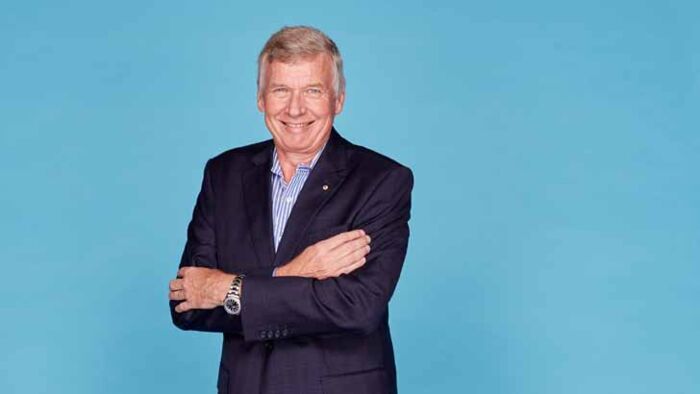Ask Paul: What should I do with $30k in savings?
By Paul Clitheroe
Dear Paul,
I'm a 53-year-old single childless woman with a small positively geared property in Sydney worth about $750,000 that is currently rented out at $565 a week (I recently paid it off during lockdown). I now work part-time earning $81,000 (from my job and side business) and I rent in Melbourne for $380 a week.
I am reluctant to sell my Sydney unit as Sydney is my childhood home. But I am now paying tax on it so it costs me more to rent in Melbourne than to live in my Sydney unit.
I have saved $30,000 (again, thanks to the Melbourne lockdown) and don't know what to do with it.
Should I buy an investment property in Melbourne or stash it away in superannuation (I have $400,000 in super)?
I considered buying a property to live in, but can't face the prospect of living in a tiny one-bed unit with no balcony in the price range I may be able to afford.
I've always had to look after myself financially, as a single woman, and I'm lucky to have property paid off at this age where many other middle-aged women are struggling. I am still conscious of preparing for my old age.
I'd like to leave some money to my nieces and nephews, but want to just have enough to live on till the end. I've also considered a reverse mortgage when I'm much older.
I hope you can help. I've tried to call a couple of financial advisers but can't seem to find anyone who will do a one-off consult. - Nerida
You have done a good job with your wealth creation, Nerida. With a paid-off property valued at $750,000, $400,000 in super and your savings habit seeing you build up another $30,000, you are in really good financial shape at age 53.
You also have a good level of income from your work and a side business. Good on you.
Renting is quite okay as long as you continue to build assets. With a nice balance between property and super, I am not overly concerned about which way you go.
Making extra super payments via salary sacrifice is a very simple and powerful strategy. But as you continue to save, I suspect you are already doing that. Your super will give you exposure to a broad set of assets both here and overseas. Please check you are in a low-cost, solidly performing fund and that any insurance in the fund is appropriate for you.
Now we move to a very common question.
With your savings and surplus income, do you buy a property or max out your super contributions and then start to build a share portfolio, probably using a low-cost indexed fund or an exchange traded fund.
The share option is delightfully simple. You choose a good fund, organise monthly direct debit contributions and away you go. Based on the very long history of markets, this should see returns of over 7% in the longer term.
Sure, you could also borrow to build a share portfolio, but it seems to me that most people, and certainly our banks, find property a more comfortable asset to gear. Despite many people with very strong opinions about "buy shares" or "buy property", the reality is the strongest yelling comes from those with the greatest bias, that is, sellers of property promote property, sellers of shares promote shares.
Sure, if we choose Australia's best-performing property areas, property looks better. Choose our best-performing shares and shares look better.
I think a more rational look at the facts is that a well-located property in a growth part of Australia, near public transport, entertainment, schools, work, hospitals and a decent cup of coffee has done well. So has a good portfolio of shares.
Frankly, I don't see much difference in long-term performance. I own investment property and will keep it, but I don't like the labour-intensive nature of property, with stuff breaking and so on. I do love the "no care" aspect of owning a decent share portfolio.
This is up to you. The obvious difference is gearing. If you put down, say a 10% deposit on a $300,000 apartment in Melbourne, you have $30,000 of your money in the property. If it increases at 7% a year, then you are making (ignoring rent, which will be needed to fund your mortgage interest) about $21,000 a year. On the $30,000 you have tied up in the property, that is about 70%pa.
Yes, this all turns to custard if property values fall. A drop of just 10%, on paper, wipes out your $30,000. I say "on paper" because the whole idea of property is to hold it for the long term and ride the bumps in the market. Critically, you don't want to ever be forced to sell, so make sure you allow for rising interest rates and the loss of a tenant. Always good to have a "worst-scenario" plan!
My role is to lay out the facts and let you make the best decision for you. I am really comfortable with you building a share portfolio, or if it suits your skill set and interests better, go and find a well-located property.
Gearing brings more risk, but you are experienced with money and investment property. The population of Melbourne is predicted to be more than 8 million in about 30 years. This is where property is a nice, simple "supply and demand" asset. Where it goes badly wrong is if the population falls. In the case of Melbourne that looks highly unlikely.
Get stories like this in our newsletters.



